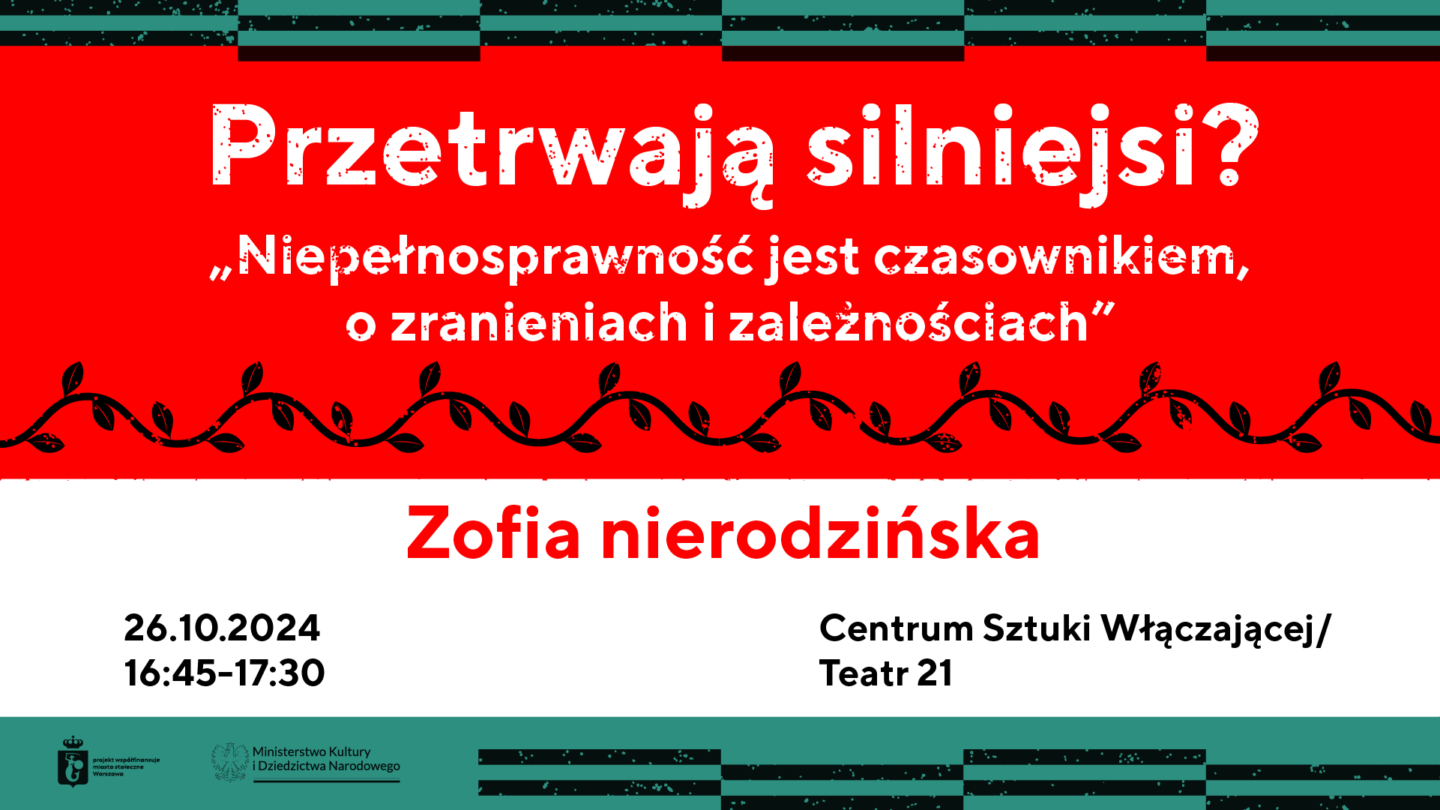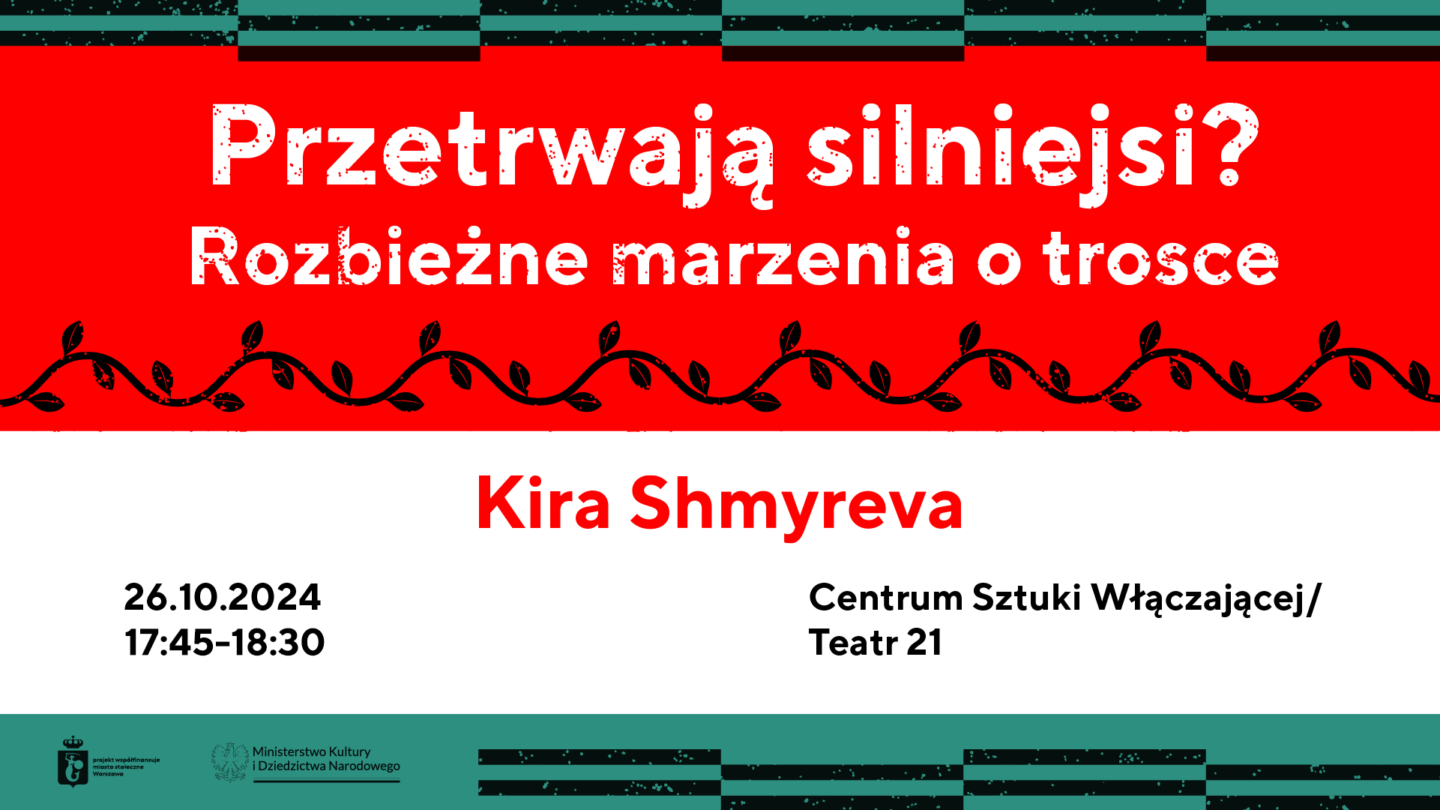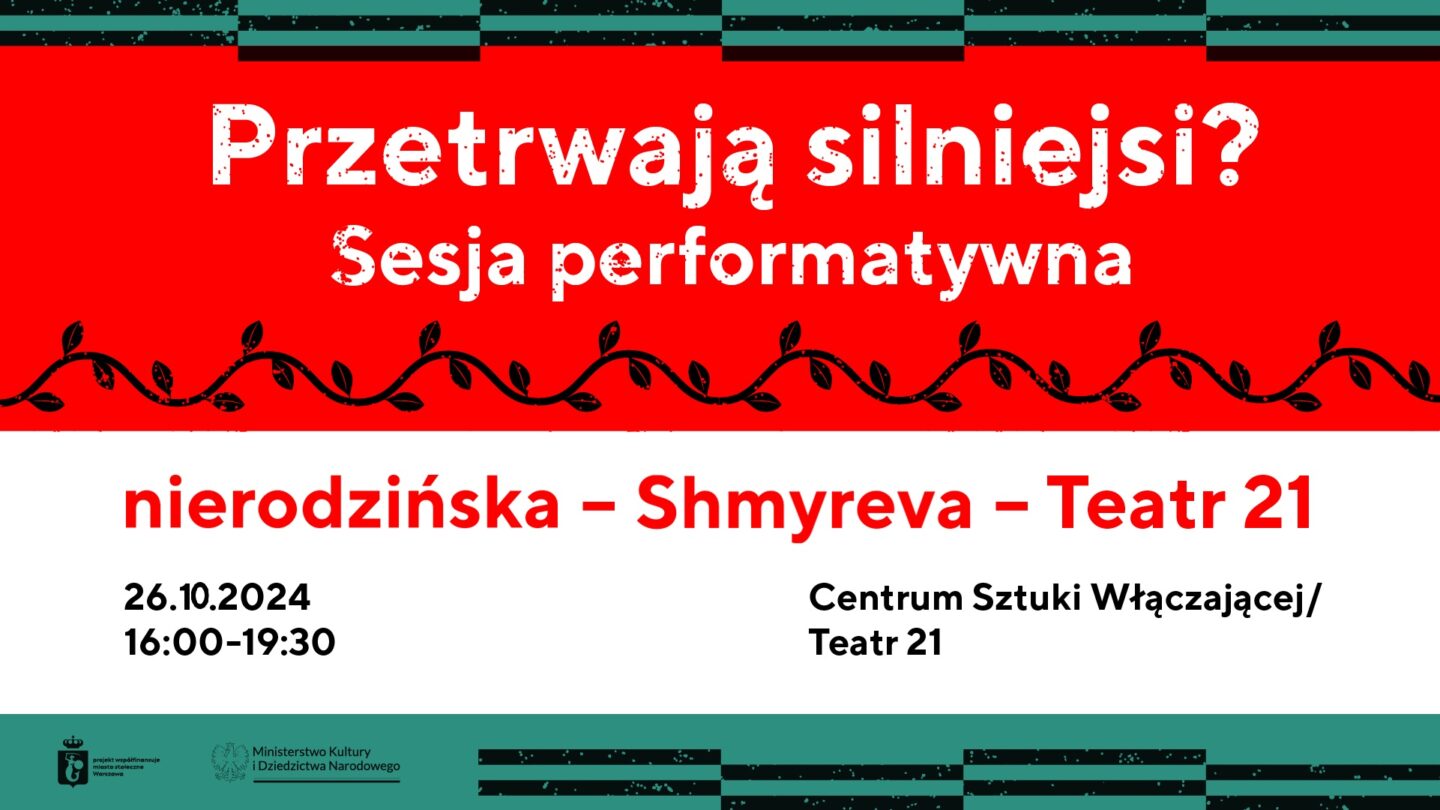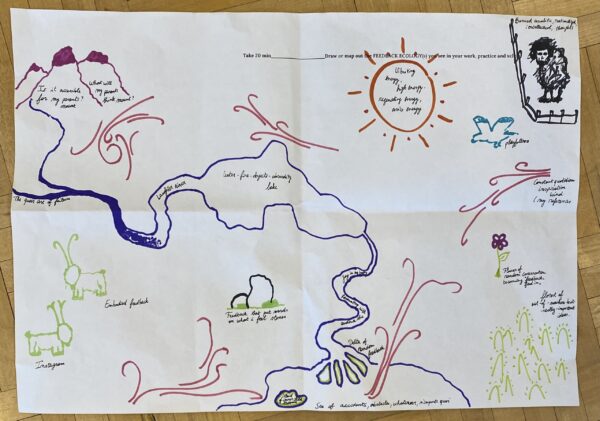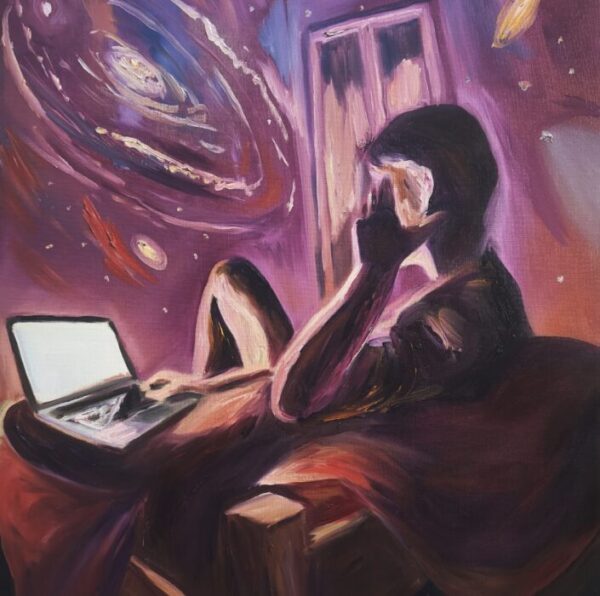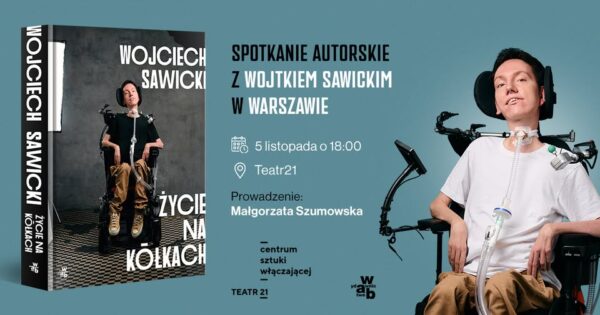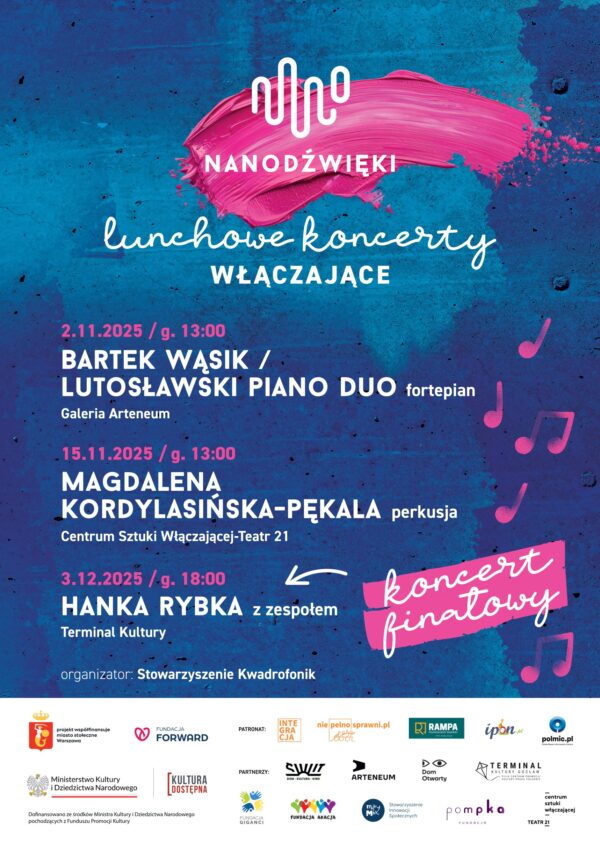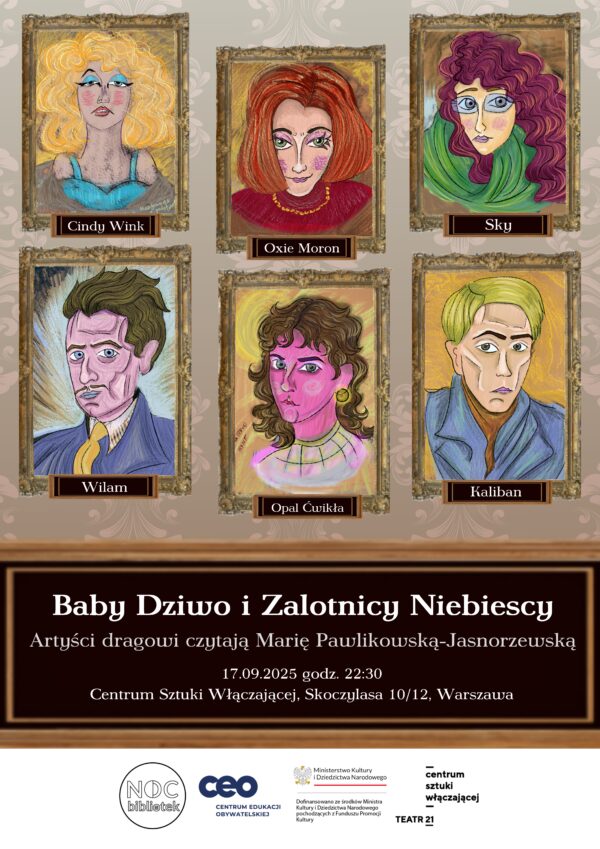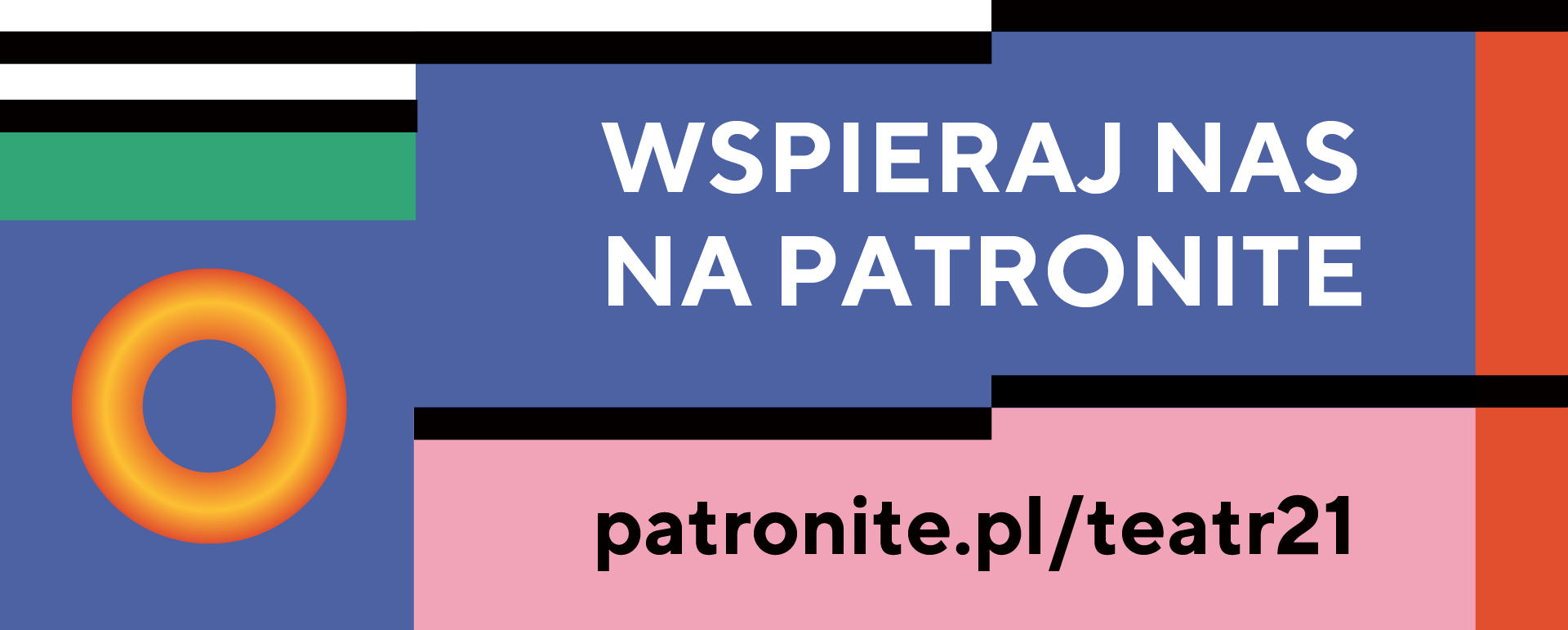Philoctetes – Reading
The session will open with a reading of excerpts from Philoctetes, interpreted and performed by actors from Theatre 21. The selection of fragments and words is an invitation to an unconventional reading of Sophocles’ canonical text.
Read by: Aleksandra Skotarek and Daniel Krajewski
Justyna Lipko-Konieczna
The Stronger Will Survive? Introduction to the season’s theme
Where does the strength of our notions of weakness come from? What is their historical context, and where do they originate? How can we draw on the achievements of civilization in reflections on contemporary survival strategies? And how do we know which knowledge we do not have access to?
Zofia nierodzińska
Disability is a Verb: On Wounds and Dependencies
Zofia nierodzińska’s lecture offers an in-depth engagement with the theory-practice of Sunaura Taylor, an American activist, theorist, artist, and person with a disability, known in Poland for her book Beasts of Burden: Animal and Disability Liberation, published three years ago. In it, Taylor combined activism for animal rights with the rights of people with disabilities, viewing these as inseparable struggles that support one another.
In her latest book, Disabled Ecologies: Lessons from a Wounded Desert, which has yet to be translated into Polish, the author outlines a broader horizon of change that encompasses the entire environment damaged by capitalist exploitation. A part of this “wounded ecosystem,” as Taylor might call it, are also people who drink contaminated water, live in drought-threatened areas, or are at risk of floods. However, this vulnerability to harm is not democratically distributed; it is most often concentrated in the poorest regions of the world, in the least privileged, socially excluded communities. Taylor thus links social marginalization with lives marked by crises and global, capitalist disablement, and finds words, actions, and alliances that oppose this violence.
The lecture Disability is a Verb: On Wounds and Dependencies aims, following Sunaura Taylor, to introduce the process of drawing knowledge from disability, which may become essential for surviving together with damaged ecosystems, of which human animals are an inseparable part.
Divergent care dreams
Relaxed lecture-performance
Duration: 45 minutes
All regimes pursue eugenics politics with eugenic dreams about the correction of marginalised human and non-human beings. The goal of eugenics is a disciplinary power of white male heteronormative non-disabled bodies.
In their lecture-performance, Kira ask which dreams in themselves continue the eugenic dreams and how queer & crip divergencies could stop these dreams.
By lining up in nonlinear ways stones, images, movements and text fragments about care, Kira attempts to access the hidden evidence and co-create the space for mourning, dreaming, sharing the divergent practices.
Bio
Kira Shmyr (they / them) an artist from/in working class, theatre pedagogue, personal care assistant and anti-eugenics activist born in Russia and living in Berlin. Their videos, performance and writing practices are coming from the longing for dissolution and divergent care dreams. They explore how ableism erases access to memory and produces fascisms. They believe in disability justice and focus on aesthetic of access in order to co-create the neuroexpansive spaces.
Dr. Zofia nierodzińska: author, exhibition curator, visual artist, and academic lecturer. From 2017 to 2022, she served as the deputy director of the Arsenał Municipal Gallery in Poznań. She focuses on the art of post-socialist countries, migration, cultural accessibility, as well as social and interspecies activism. She studied at the University of the Arts in Poznań (PhD) and at the Universität der Künste in Berlin (Master’s degree). She lives and works in Berlin. More information can be found on the website: www.znierodzinska.com
Languages of the meeting: Polish, English, Polish Sign Language
Free admission

